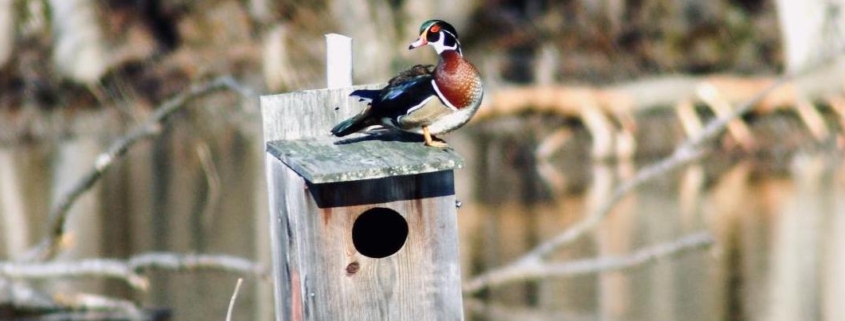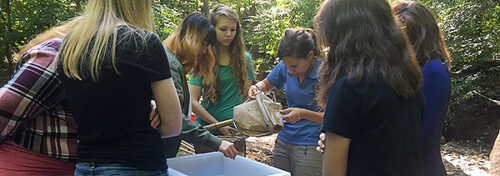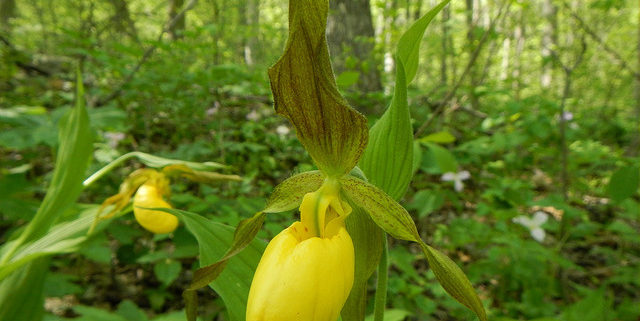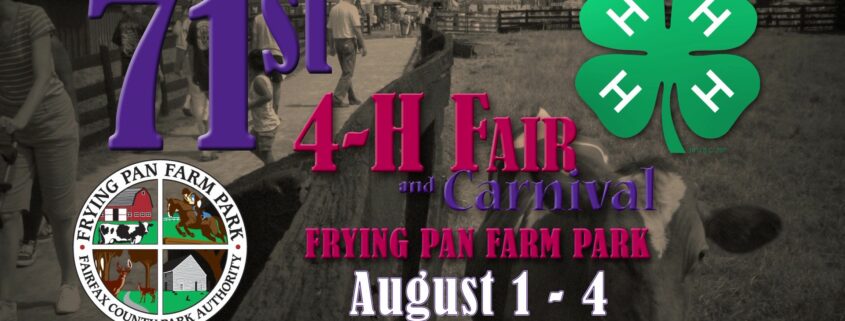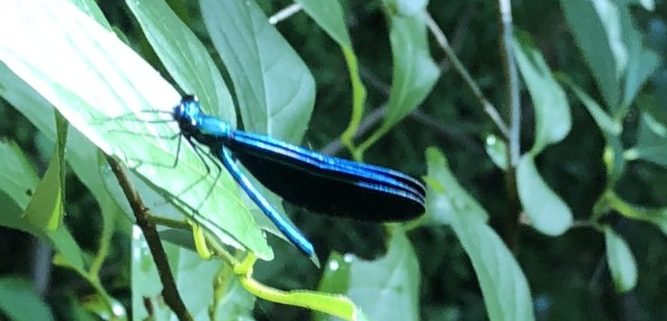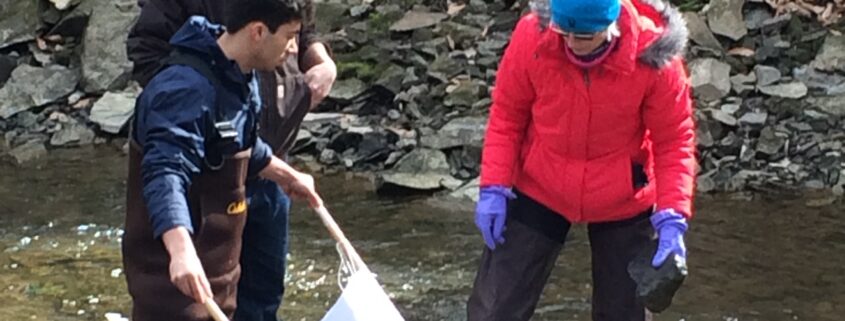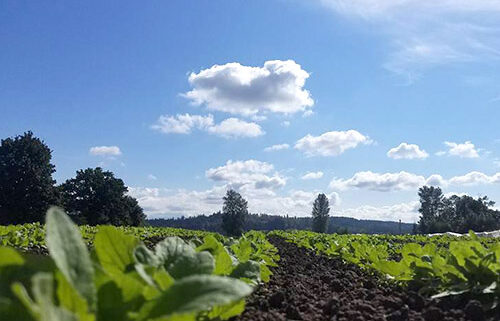Citizen science in chest waders
Photo: FMN Jerry Nissley
David Gorsline
For the past 25+ years, I have participated in a program of monitoring nest boxes for Wood Ducks and Hooded Mergansers in Huntley Meadows Park.
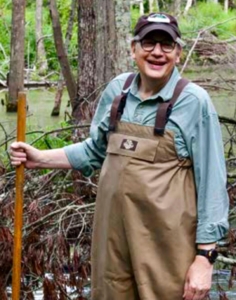
FMN David Gorsline. Photo: FCPA
Our team monitors 16 boxes in the park’s wetlands. We are the people with the big boots and sticks, because almost all of the boxes are mounted on poles in one to three feet of water.
These two species of duck begin laying eggs in very late February, and the last of the eggs hatch by about Memorial Day, sometimes a little later. Both of these birds bear what are called precocial young; that is, the ducklings come out of their eggs already covered in down, ready to be on their own, and they leave the nest box with their mother after only a day or two. Thus, it’s not often that we see chicks in the nest, unlike our counterparts on the Eastern Bluebird team. But, come April, if you keep a close eye on the vegetation at the edge of the marsh, you might spot a line of little ducks swimming behind a female.
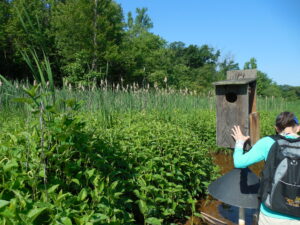
FMN Kat Dyer inspecting box #68, Huntley Meadows Park, June 2017. Photo: David Gorsline
There’s about six of us on the team, including FMN Kat Dyer. At the start of the breeding season, we clean the boxes and lay down a fresh layer of wood chips. We handle simple repairs in the field; we notify park staff if a box needs to be completely replaced. During the season, we check boxes once a week, count any eggs we find, and record hatching events. Our collected information goes on file at the park, as well as to the Cornell Laboratory of Ornithology’s NestWatch project.
Since the 1991 breeding season, the number of boxes that we have deployed and monitored has varied between 14 and 21. Not all the boxes are used in a given season, but typically about three-fourths of them are used. Hooded Mergansers, expanding their breeding range, began nesting in our boxes in 2001.
Between the Mergansers and the Wood Ducks, the number of ducklings leaving our boxes has fluctuated year to year. Our lowest year was 2015, with only 26 fledged; our big year was 2013, with 140 fledged. The annual average for the past 28 years (I’m still compiling results for 2019) was 87 ducklings.
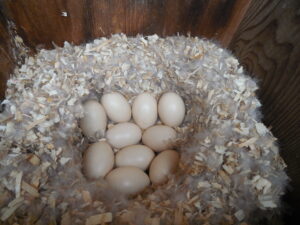
Clutch of Wood Duck eggs. Photo: David Gorsline
Who enjoys this birdy bounty? Everyone who visits the park. Especially the nature photographers take particular pleasure when they can document a fledging. When the monitoring team is out on the marsh, we often field questions from park visitors who wonder what we’re up to, and how the ducks are doing.
This project falls under C106: FCPA Citizen Science Programs. We’re always looking for new volunteers. I like us to work in pairs, just in case someone takes a tumble or gets stuck in the mud. What can I say? Nature happens.
For me, perhaps the greatest pleasure comes at the beginning of the season. It’s cold, there may be snow on the ground and the wetland iced over. Yet, I know that I will be giving these birds a boost in their struggle to thrive.


